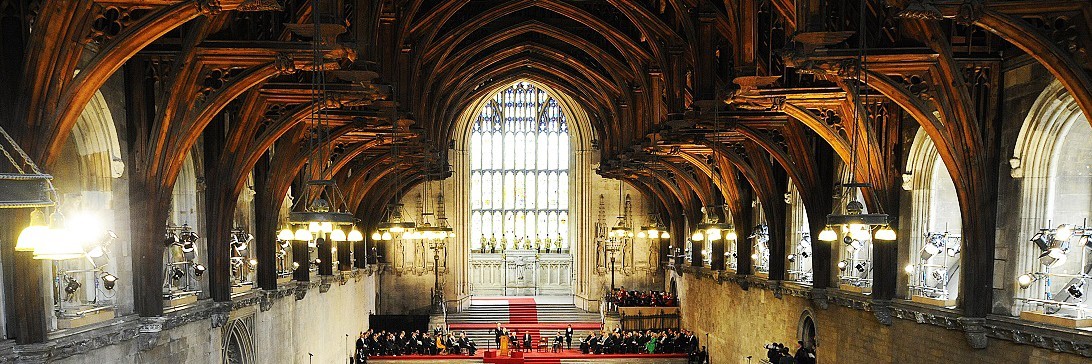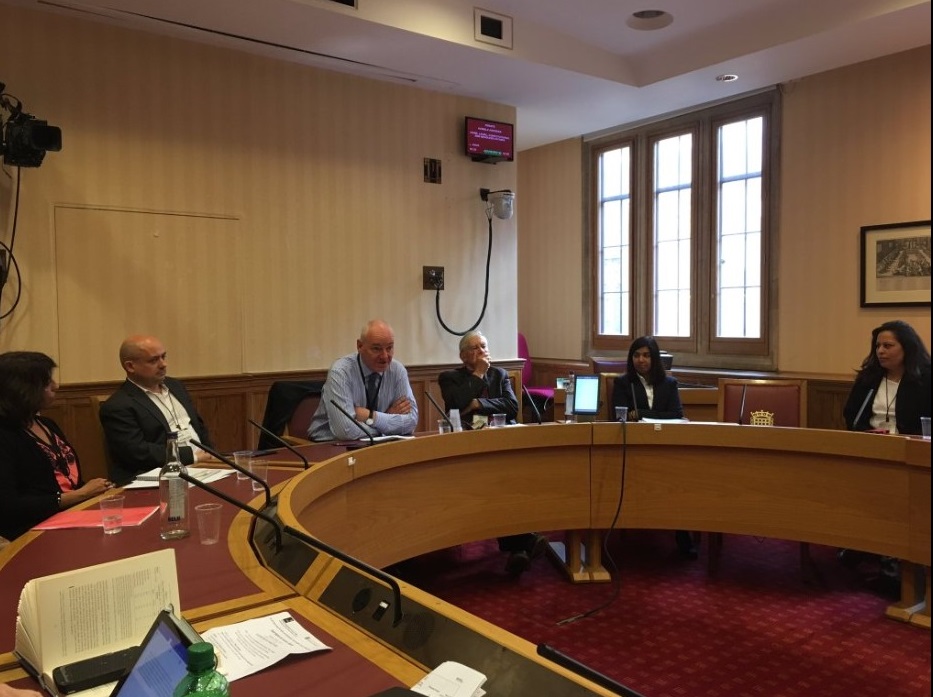The All-Party Parliamentary Human Rights Group (PHRG) and the All-Party Parliamentary Group for Dalits held this event to examine discrimination and other abuses against Dalits in the UK and around the world.
We would like to thank Lord Harries of Pentregarth, Co-Chair of the APPG for Dalits and Mark Durkan MP, PHRG Treasurer, for chairing this meeting.
The event featured two panels:
Panel 1: The UK Scene –Status of Caste Legislation under the Equality Act 2010: When will it be implemented? (Chaired by Lord Harries of Pentregarth)
- Diya Sen Gupta, Barrister, Blackstone Chambers;
- Kate Green MP, Shadow Minister for Women and Equalities;
- Satpal Muman, Chair, CasteWatch UK;
- Santosh Dass, Vice Chair, Anti Caste Discrimination Alliance;
- Murali Shanmugavelan, Centre for Media Studies, SOAS.
Panel 2: The Global Stage – Leaving No-one Behind: Addressing Inequality, Poverty and Exclusion in Caste-Affected Countries (Chaired by Mark Durkan MP)
- Clive Baldwin, Senior Legal Advisor, Human Rights Watch (“CB”);
- Rania El Rajji, Middle East Programme Coordinator, Minority Rights Group International (“RER”);
- Aidan McQuade, Director, Anti-Slavery International (“AM”).
The points raised during the second panel were as follows:
- Descent-based discrimination has been illegal under international law for at least 20 years. The main challenge in addressing the problem lies in the lack of its implementation. (CB)
- Caste-based discrimination in Nepal is of particular concern. Dalits in Nepal have faced long-standing discrimination, which has contributed to the unrest in the south of the country (CB).
- The Al Muhamasheen, literally ‘the marginalised’, are Yemeni citizens who tend to have darker skin than the rest of the population. As a result of centuries of discrimination, the group are extremely poor, have essentially no rights and tend to carry out menial jobs such as street cleaning. They have been made even more vulnerable by the war in Yemen.
- Corrupt police and overburdened courts mean that well-written laws often fail to have a positive practical impact on tackling caste discrimination. (AM)
- The UK Government has indicated that it wants to be a world leader on tackling slavery but it has failed to recognise how caste discrimination is the basis for many groups held in slavery, particularly in south Asia. (AM)
- The UK Government should take a much more active role in challenging slavery and caste discrimination in their dialogues with countries, such as India, Pakistan and Nepal. (AM)
The PHRG advocates for the most marginalized victims of human rights violations around the world, including those affected by caste-based discrimination. We will continue to push for change whenever possible in the UK Parliament and with relevant authorities.


